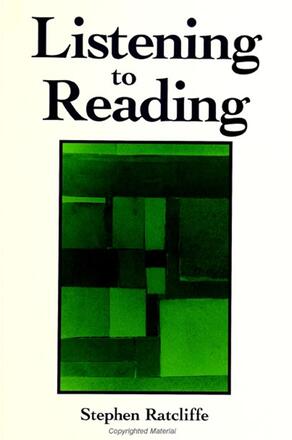
Listening to Reading
Alternative formats available from:
Contends that "experimental" writing--from Mallarme, Stein, and Cage to contemporary poets of the eighties and nineties--can teach us much about how we write and read both poetry and criticism.
Description
Listening to Reading presents two different kinds of writing about poetry—"critical analysis" and "performance"—both of which pay particular attention to sound, shape, and the relation of sound/shape to meaning. It offers a critical and performative presentation of experimental writing, also known as avant garde, postmodern, innovative, and language writing. Less concerned with labels than with asking how this writing works, it invites us to read from earlier works by Mallarme, Stein, and Cage to books published in the eighties and nineties by Mei-mei Berssenbrugge, David Bromige, Clark Coolidge, Beverly Dahlen, Michael Davidson, Larry Eigner, Robert Grenier, Lyn Hejinian, Paul Hoover, Susan Howe, Ron Padgett, Michael Palmer, and Leslie Scalapino—writers whose work is viewed as difficult, and who have as yet been largely ignored by criticism.
Stephen Ratcliffe is Associate Professor of English at Mills College. He is the author of several books, including SOUND/ (system); Mallarme: poem in prose; and Sculpture.
Reviews
"An important work, Listening to Reading manages both to explore texts that enact a more engaged reader response even as the manuscript itself enacts such a response. The discussion of difficult, ostensibly 'inaccessible' poetries cries out for a wider audience, and could have far-reaching impact on our general understanding of critical theory and practice. " — Joe Amato, author of Bookend: Anatomies of a Virtual Self
"The book's crossing of genres is innovative: a combination of critical and creative styles, of explanation and illustration. " — Krzysztof Ziarek, author of Inflected Language: Toward a Hermeneutics of Nearness
"The book is, in the end, more than interesting to read: it is inspiring. " — Jed Rasula, Queen's University